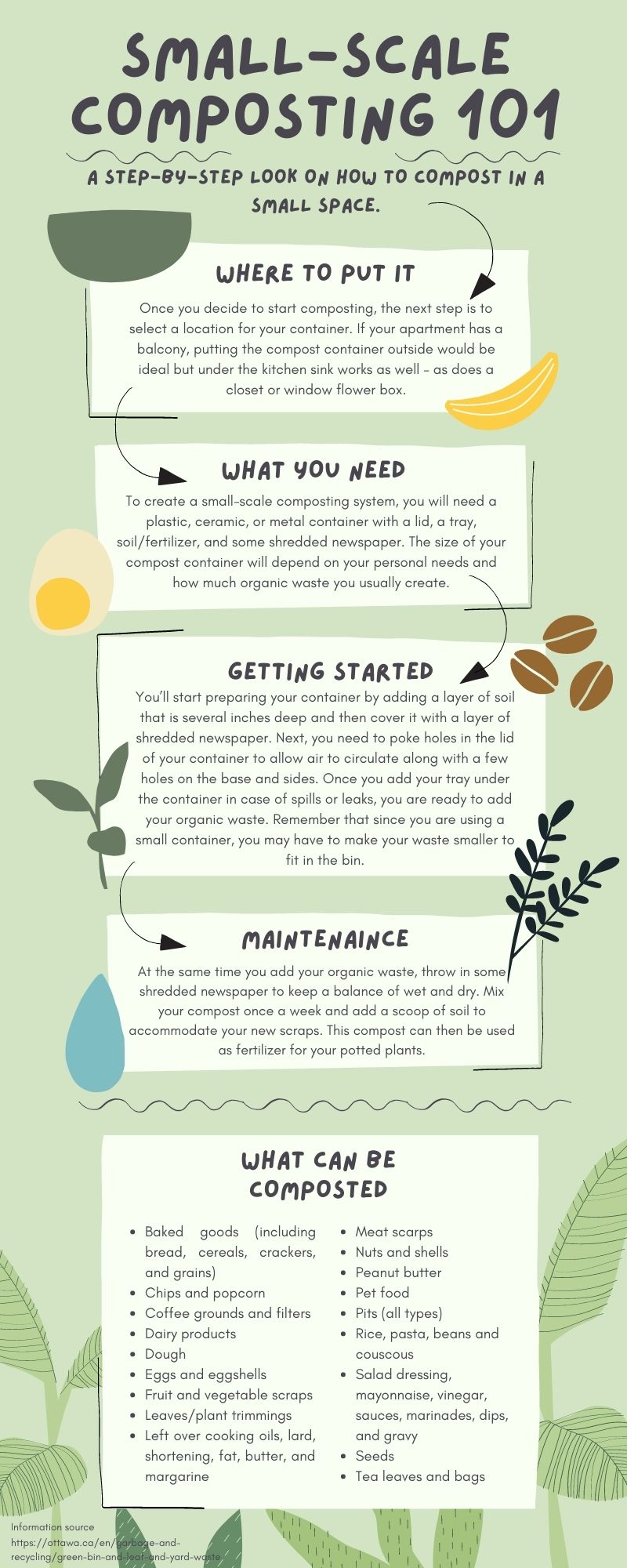Urban Composting, Top Tips for Small-Space Gardeners

Composting Tips for Urban Gardeners: Enhancing Small-Space Gardening
Urban living presents unique challenges for creating sustainable and eco-friendly environments. One effective method to tackle these challenges is urban gardening, which allows us to cultivate plants even in limited spaces. To maximize the benefits of urban gardening, integrating composting into our routines becomes essential. Composting involves breaking down organic matter into nutrient-rich soil amendments, making it a cornerstone for successful urban gardening.
The Importance of Composting in Urban Gardening
Composting holds pivotal importance for urban gardeners on several fronts. Firstly, it significantly reduces waste by recycling kitchen scraps and other organic materials, thereby contributing to cleaner homes and neighborhoods. Secondly, compost enriches soil quality, crucial for urban areas where soil often suffers from pollution and environmental stresses. By enhancing soil fertility, compost enables robust plant growth, essential for sustainable urban ecosystems.
Benefits of Composting for Urban Gardeners
- Reduces Waste: Composting converts kitchen scraps into nutrient-rich compost, diverting waste from landfills.
- Improves Soil Quality: Enriches soil with vital nutrients and microorganisms, enhancing its structure and fertility.
- Supports Plant Health: Facilitates efficient nutrient absorption by plants, promoting healthier and resilient growth.
- Enhances Water Retention: Improves soil's ability to retain water, critical for urban gardening's water conservation efforts.
Top Tips for Composting in Small Spaces
Successfully composting in small urban settings requires strategic planning and execution:
- Choose the Right Container: Opt for a container that fits your space—like a 5-gallon bucket or compost bin with a lid—to manage compostable materials efficiently.
- Layer Your Materials: Alternate brown (e.g., dried leaves) and green materials (e.g., kitchen scraps) to maintain a balanced compost pile.
- Maintain Moisture: Keep your compost pile adequately moist but not overly wet by adding water as needed.
- Aerate Regularly: Turn the compost pile every few weeks to introduce oxygen and facilitate decomposition.
- Monitor Temperature: Ensure compost reaches an optimal temperature (between 130°F and 160°F) using a compost thermometer to accelerate decomposition.
Kitchen Waste Composting
Utilizing kitchen scraps for composting offers a sustainable solution to reduce food waste and enhance urban gardening:
- Collect Scraps Efficiently: Gather vegetable peels, fruit cores, and coffee grounds in a designated container for composting.
- Avoid Meat and Dairy: Exclude meat and dairy from compost piles to prevent odor and pest issues, ensuring a clean composting process.
- Maintain Balance: Maintain a balanced mix of brown and green materials for a healthy compost environment.
Soil Enrichment with Compost
Compost serves as a potent soil amendment, improving soil structure, fertility, and water retention:
- Incorporate into Soil: Blend compost into soil around plants to fortify nutrients crucial for vigorous growth.
- Mulching Benefits: Use compost as mulch to conserve moisture and suppress weed growth effectively.
- Enhance Potting Mix: Mix compost into potting soil to enhance drainage and aeration, vital for healthy potted plants.
City Composting Programs
Many cities offer composting programs to empower residents with sustainable waste management options:
- EPA Composting Guide: Explore the EPA's comprehensive guide on home composting practices, offering insights and best practices to maximize composting efficiency. Learn more.
Conclusion
Composting stands as a cornerstone of successful urban gardening, enabling us to create nutrient-rich soil amendments while reducing waste and supporting healthy plant growth. By adopting the recommended tips for composting in small spaces and integrating kitchen waste composting into our routines, we can significantly impact urban environments positively. Remember to start with the right container, layer materials effectively, maintain moisture levels, aerate regularly, and monitor compost temperature for optimal results.
FAQs
- How do I start composting in my small urban garden?
- Can I compost meat and dairy products?
- How often should I turn my compost pile?
- Can I use compost in my potted plants?
- Are there specific temperature requirements for composting?
This revised article expands on urban gardening tips, small-space composting techniques, and practical insights for sustainable urban living.
0 Response to " Urban Composting, Top Tips for Small-Space Gardeners"
Post a Comment